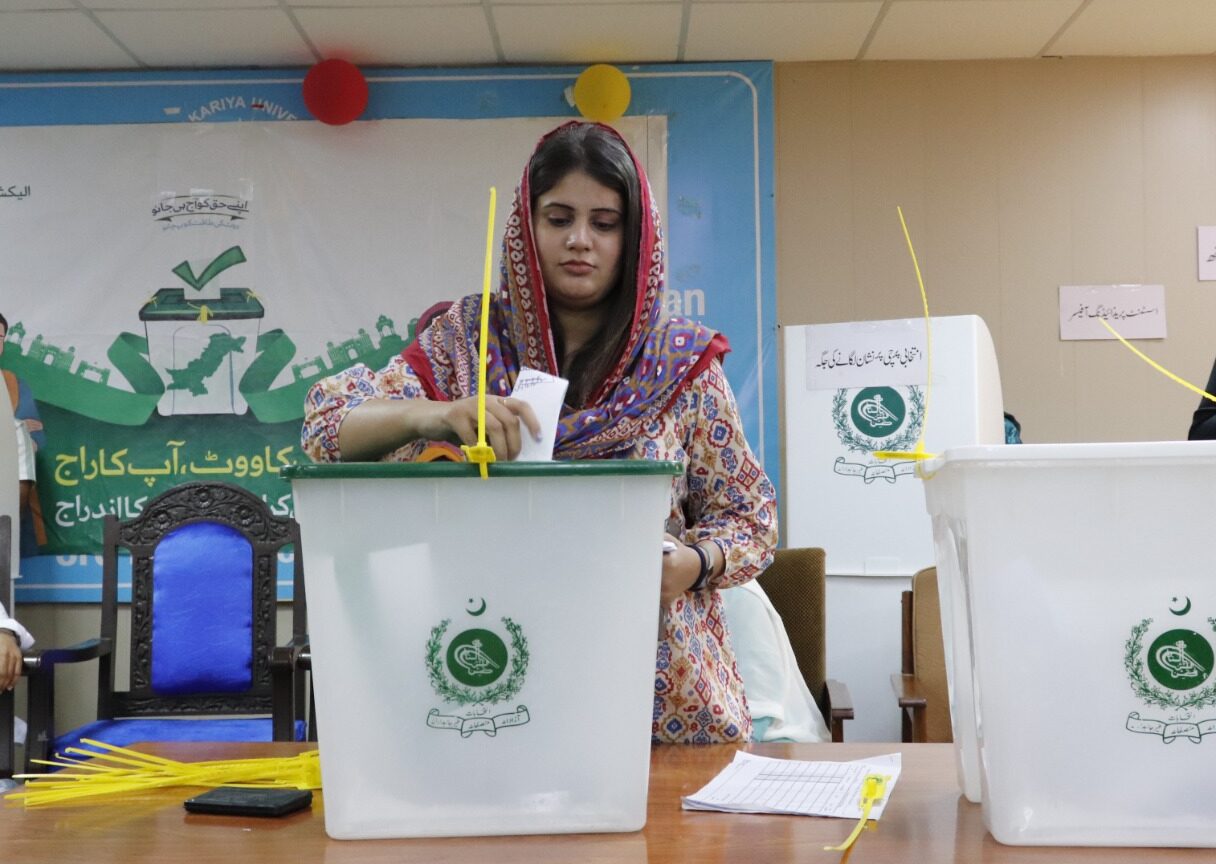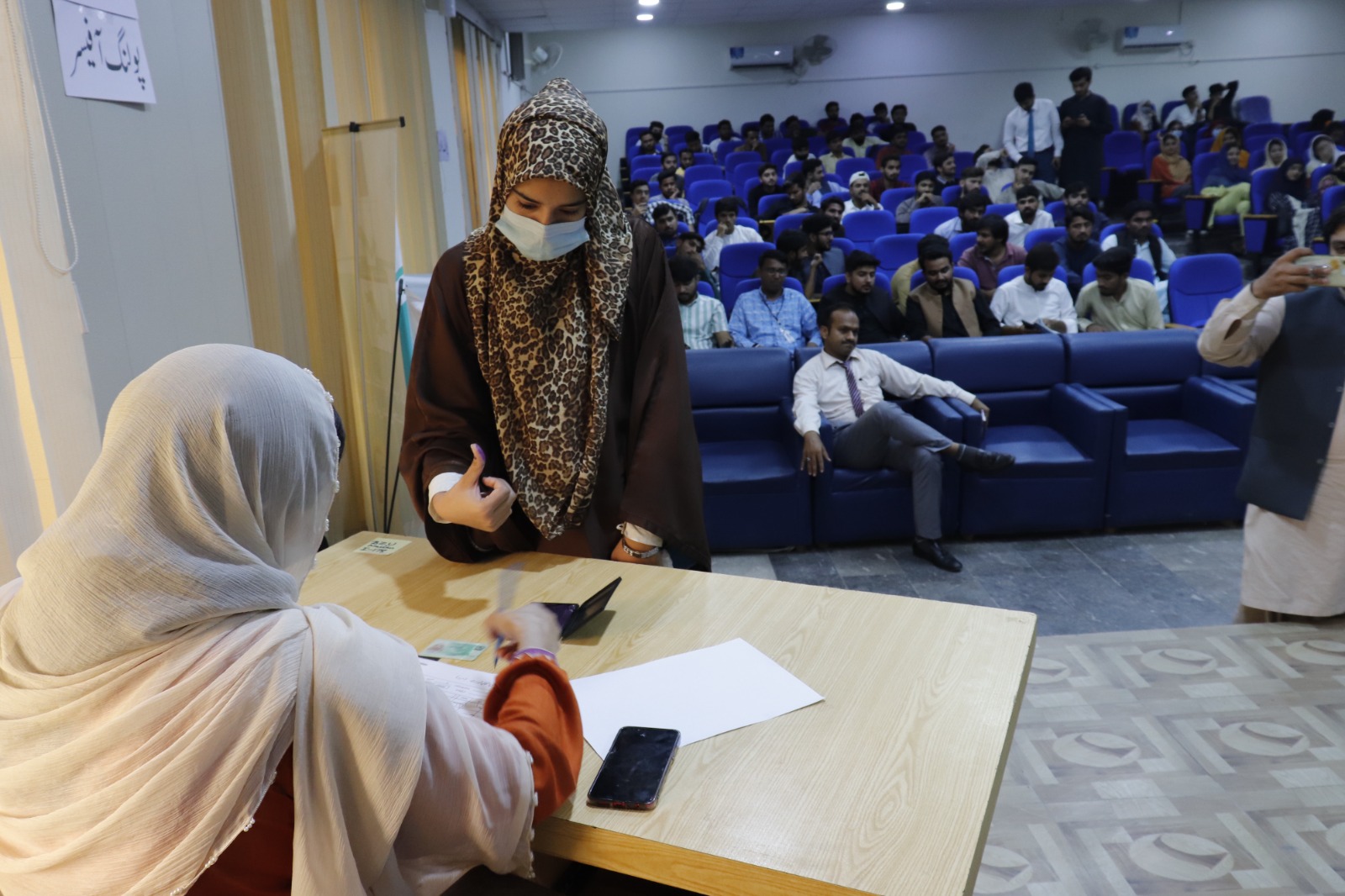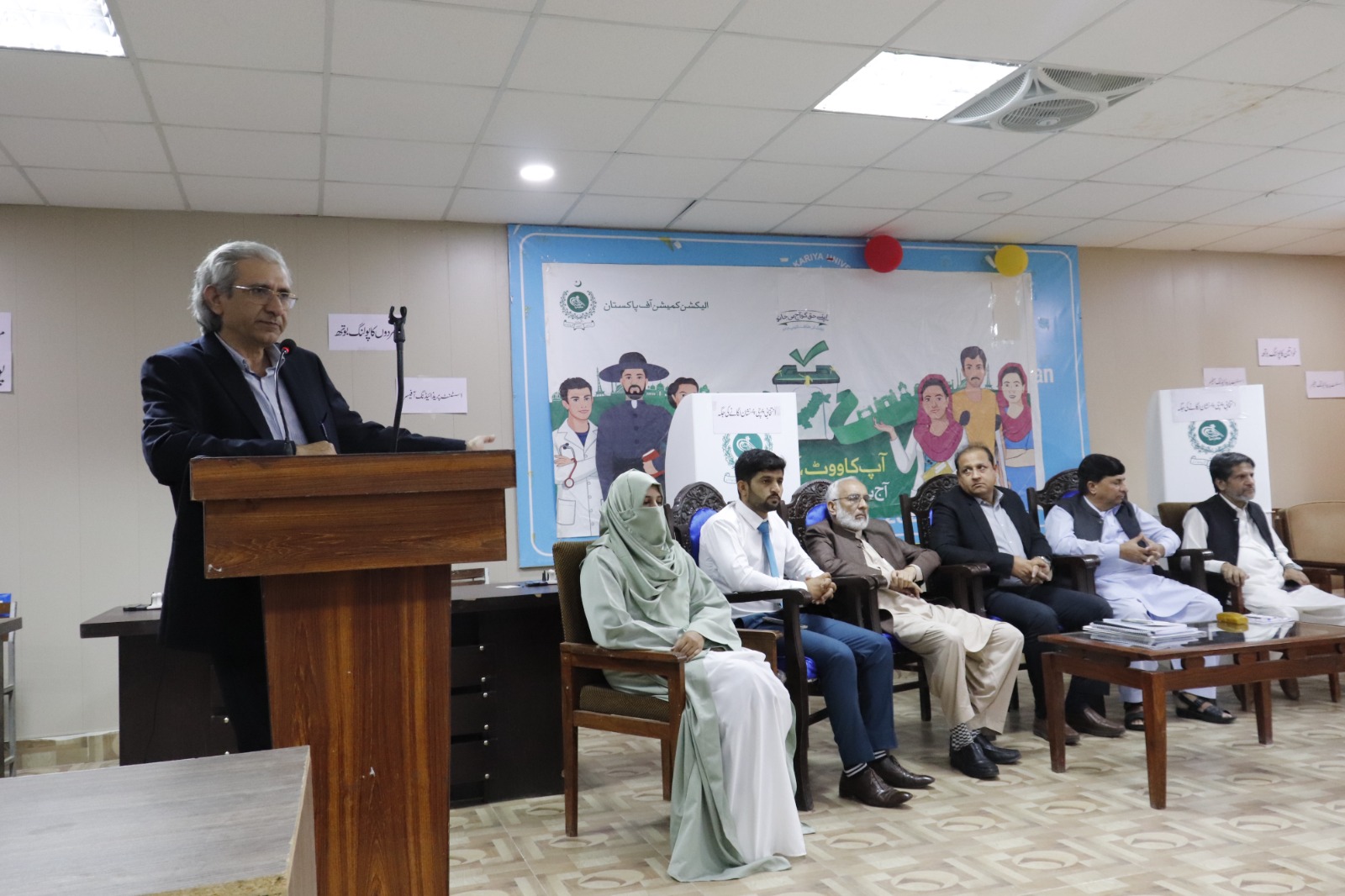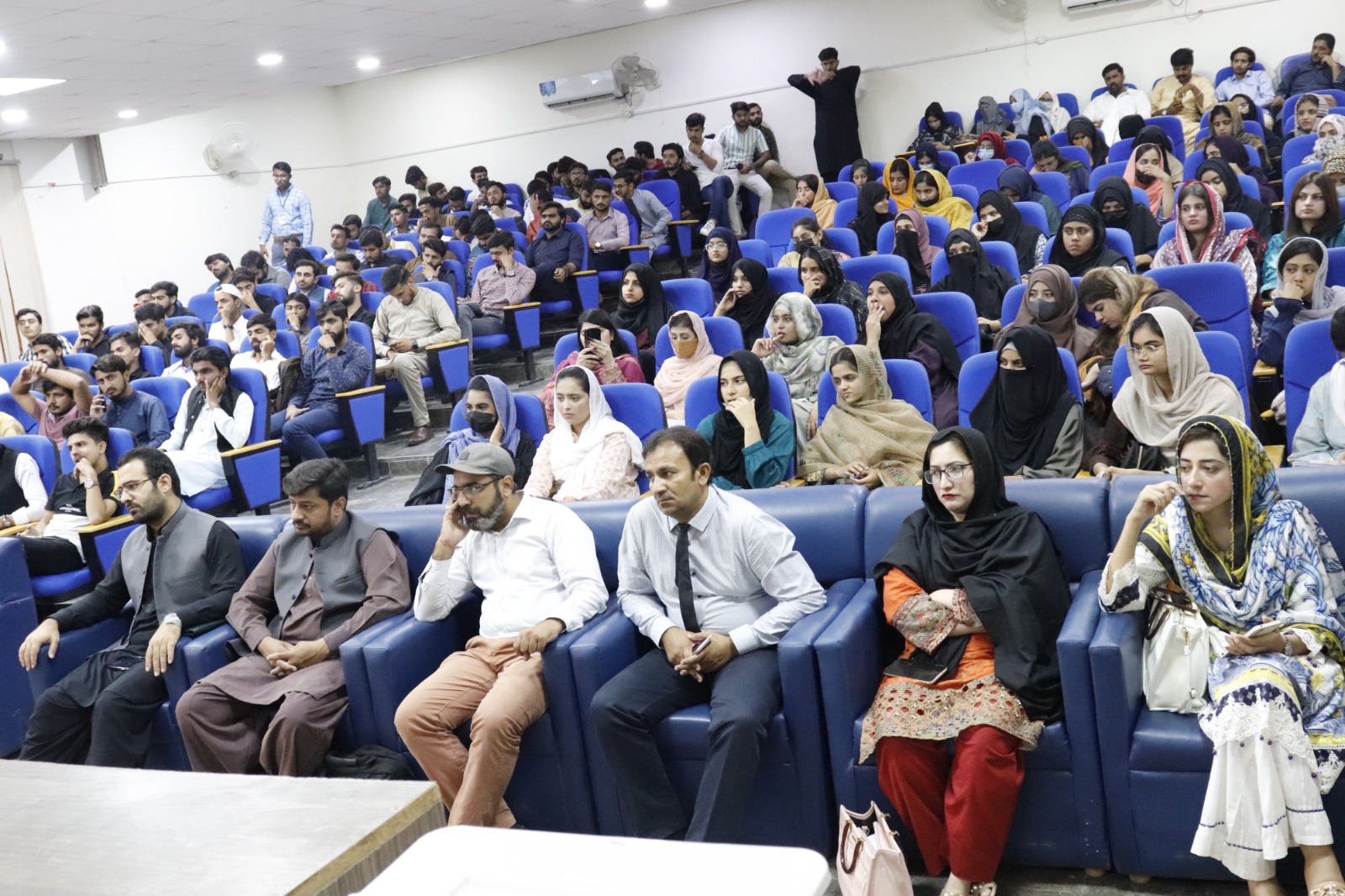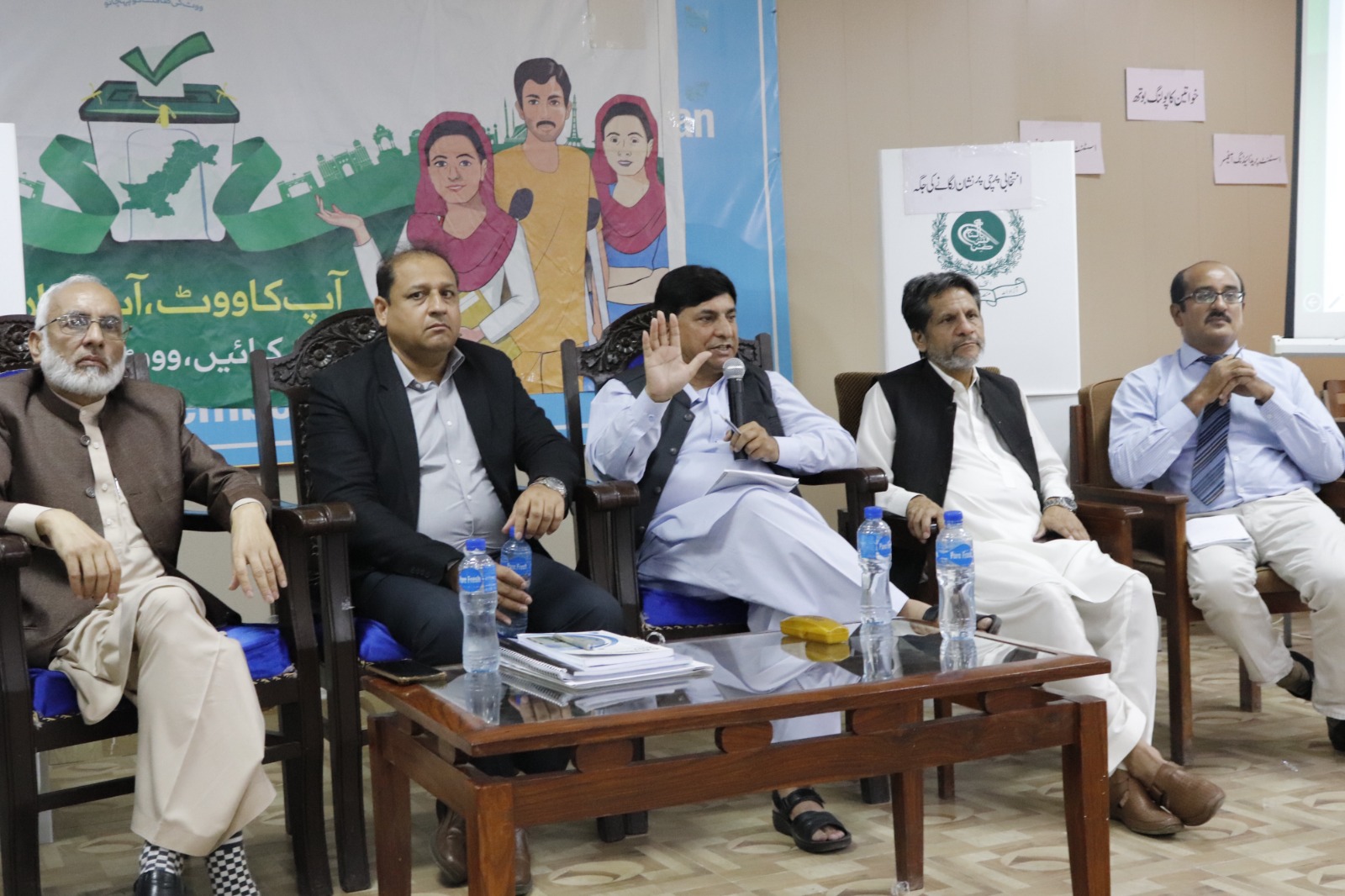
October 25: A consultative session with the students and faculty of the Bahauddin Zakariya University, Multan was held at their Political Science Seminar Hall in collaboration with UNDP Pakistan. Mr. Abdul Hafeez, Joint Provincial Election Commissioner Punjab and Chaudhry Nadeem Qasim, Regional Election Commissioner Multan, represented the Election Commission of Pakistan (ECP) at the consultative session. Mr. Muhammad Qasim Janjua Program Advisor, Elections and Democratic Space, Strengthening Electoral and Legislative Processes (SELP), Democratic Governance Unit, UNDP Pakistan was also present during the consultative session.
Dr. Naeem Mehboob Malik, Assistant Professor at the Political Science Department of Bahauddin Zakariya University Multan welcomed the participants and expressed his gratitude to PILDAT and UNDP for organizing the session on the importance of youth participation in Pakistan’s electoral processes.
Mr. Faheem Ahmed Khan, Senior Projects Manager PILDAT, introduced the panel members. The panel members included Mr. Abdul Hafeez, Joint Provincial Election Commissioner Punjab and Chaudhry Nadeem Qasim, Regional Election Commissioner Multan. The Youth Representatives included Ms. Laiba Khalid and Mr. Sohail Jatoi, while the university was represented by Dr. Naeem Mehboob Malik, Assistant Professor in the Political Science Department at the Bahauddin Zakariya University.
During his presentation, Mr. Faheem Ahmed Khan, Senior Projects Manager PILDAT discussed the demographic distribution of registered voters in Pakistan, highlighting 45% of the total registered voters belonging to the age group of 18-35 years. Additionally, he provided a comparative analysis of the voting behaviors shown by the young population of Pakistan and India. Notably, the youth voter participation in India surpassed the overall voter turnout seen in the most recent Indian elections. The panelists agreed that low youth voter participation was a genuine problem, not a myth. They gave explanations for the low voter participation.
The Youth Representative, Ms. Laiba Khalid, emphasized that the lack of youth voter turnout is primarily due to a disconnect between political leaders and the expectations of the youth. She pointed out that many young people struggle with trust issues, which further discourages them from actively participating in the electoral process.
Mr. Sohail Jatoi, the Youth Representative, highlighted that the lack of awareness sessions led to detachment among the youth. Many young people perceive that their votes hold no value, contributing to their reluctance to participate in the electoral process. Furthermore, the lack of a robust local government system has marginalized the youth, giving them the impression that their participation is meaningless.
Mr. Abdul Hafeez, Joint Provincial Election Commissioner Punjab, emphasized the significance of youth participation in the country’s electoral process. He discussed the efforts made by the Election Commission of Pakistan (ECP) to integrate youth into the mainstream, elaborating on the awareness initiatives. In terms of the ECP’s role, the ECP oversees the voting process during pre-poll days and on polling days, ensuring fairness, transparency and security.
Chaudhry Nadeem Qasim, Regional Election Commissioner Multan, stressed the importance of active participation from all sectors to engage youth effectively in Pakistan’s electoral process. He emphasized that every stakeholder, including political parties, must define their respective roles to encourage maximum youth participation. Mr. Qasim pointed out that family politics acts as a barrier for young individuals, hindering their involvement. Furthermore, he emphasized the need to strengthen local government elections, considering it the primary method to include youth in the political process.
Dr. Naeem Mehboob Malik elaborated on the pivotal role of youth in active politics, emphasizing their significance in shaping the future. He highlighted the university’s initiatives to actively involve students in political participation, fostering a culture of engagement and awareness among the youth.
The session was attended by a total of 135 students out of which 55 (41%) were young women and 80 (59%) were young men.
Following the panel discussion, students enthusiastically participated in a mock polling exercise and cast their votes. The students were eager to experience the democratic process firsthand and engage in meaningful discussions about the topics presented during the panel discussion.
